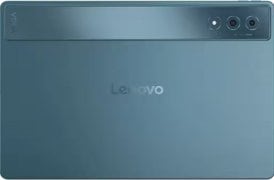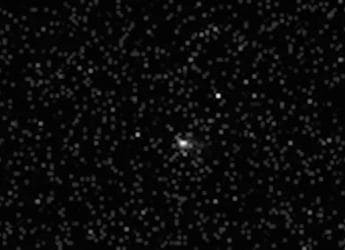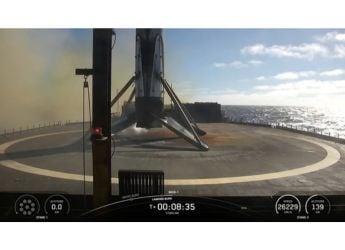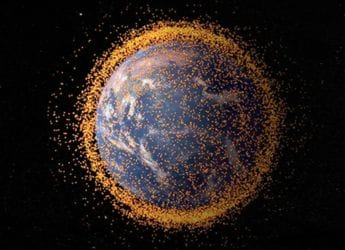- Home
- Science
- Science News
- China and NASA Coordinate to Avoid Satellite Collision for the First Time
China and NASA Coordinate to Avoid Satellite Collision for the First Time
In a first, China’s space agency (CNSA) warned NASA of a possible satellite collision, offering to adjust its craft’s orbit.

Photo Credit: NASA
Artist’s concept shows near-Earth orbital debris field using NASA’s real orbital data.
In a first for space traffic control, China's space agency (CNSA) contacted NASA to prevent a satellite collision. CNSA warned of a "conjunction" (close approach) involving one of NASA's satellites and offered to move it while NASA maintained its position, according to NASA official Alvin Drew at an international space conference in October. In the past, NASA would warn China to remain motionless while it maneuvered its own craft. This reversal of roles marks a significant advancement in global space safety.
Historic Space Traffic Coordination
According to Space.com, a surge in satellite launches coincided with the CNSA's request for a proactive maneuver. Low Earth orbits are being rapidly crowded by SpaceX's Starlink network and China's proposed Guowang and Thousand Sails constellations.
There is a greater chance of collisions and more debris when there are more satellites. Debris removal has even been given top priority in China's space plans for 2022. China showed advanced orbit awareness (space situational awareness) by alerting NASA first, a capability that is currently comparable to that of other major space powers.
Crowded Orbit and the Call for Cooperation
According to experts, this incident highlights the growing demand for international cooperation. The increase in "space junk" has prompted "growing calls for cooperation" on space traffic management, according to a Reuters analysis. An international debris-tracking center has even been advocated by Chinese President Xi Jinping.
Sharing information can help avoid risky near misses since orbits are being monitored by organizations worldwide, including commercial operators. This conversation implies that space safety can transcend geopolitical barriers, despite formal NASA-CNSA discussions being restricted by the US "Wolf Amendment."
Get your daily dose of tech news, reviews, and insights, in under 80 characters on Gadgets 360 Turbo. Connect with fellow tech lovers on our Forum. Follow us on X, Facebook, WhatsApp, Threads and Google News for instant updates. Catch all the action on our YouTube channel.
Related Stories
- Samsung Galaxy Unpacked 2025
- ChatGPT
- Redmi Note 14 Pro+
- iPhone 16
- Apple Vision Pro
- Oneplus 12
- OnePlus Nord CE 3 Lite 5G
- iPhone 13
- Xiaomi 14 Pro
- Oppo Find N3
- Tecno Spark Go (2023)
- Realme V30
- Best Phones Under 25000
- Samsung Galaxy S24 Series
- Cryptocurrency
- iQoo 12
- Samsung Galaxy S24 Ultra
- Giottus
- Samsung Galaxy Z Flip 5
- Apple 'Scary Fast'
- Housefull 5
- GoPro Hero 12 Black Review
- Invincible Season 2
- JioGlass
- HD Ready TV
- Laptop Under 50000
- Smartwatch Under 10000
- Latest Mobile Phones
- Compare Phones
- Huawei Mate 70 Air
- Moto G57
- Moto G57 Power
- Motorola Edge 70
- Moto G Play (2026)
- Moto G (2026)
- Realme C85 Pro 4G
- Realme C85 5G
- MacBook Pro 14-inch (M5, 2025)
- Asus Vivobook S16 (S3607QA)
- iQOO Pad 5e
- OPPO Pad 5
- Garmin Venu X1
- Redmi Watch 6
- Samsung 65 Inch LED Ultra HD (4K) Smart TV (UA65UE84AFULXL)
- Samsung 55 Inch QLED Ultra HD (4K) Smart TV (QA55QEF6AULXL)
- Asus ROG Ally
- Nintendo Switch Lite
- Haier 1.6 Ton 5 Star Inverter Split AC (HSU19G-MZAID5BN-INV)
- Haier 1.6 Ton 5 Star Inverter Split AC (HSU19G-MZAIM5BN-INV)

















